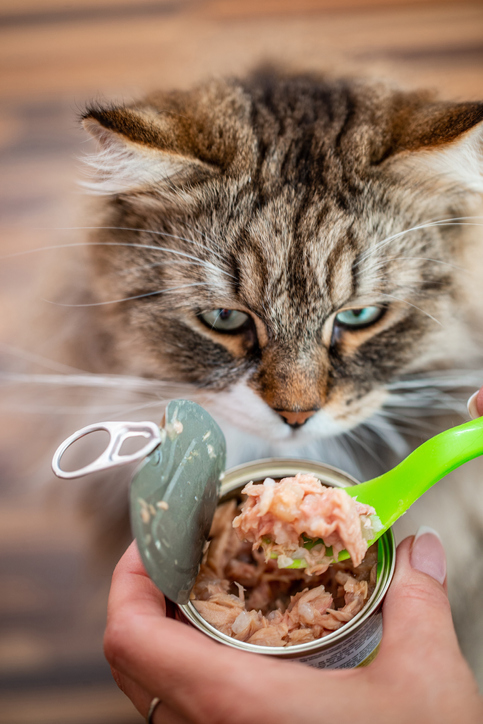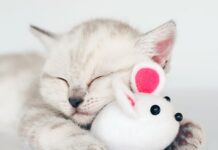Animal nutrition specialists from the Univeristy of Guelph found that feeding cats one large meal a day may help control hunger better than feeding them several times a day. The research revealed that cats that ate one meal a day were more satisfied, which they believe could result in less food-begging behavior.
The results also suggest cutting back feeding frequency could help reduce the risk of obesity by controlling cats’ appetite and potentially making them eat less, an important discovery given that obesity is the most common nutritional problem affecting cats.
This is not the first study to examine the effects of meal frequency on cat behavior, but it may be the first to use a comprehensive approach analyzing effects on appetite-suppressing hormones, physical activity, energy expenditure and use of energy sources.
The study involved eight healthy-weight, indoor cats under the age of 5. Each cat was exposed to both feeding regimens, each for a total of three weeks, with the same diet and amount being offered in either one meal or four meals. Some of the cats were fed only in the morning, while the others were fed the same amount in four smaller meals.
The cats were equipped with activity monitors on harnesses to measure their voluntary physical activity. Food intake was recorded daily, and body weight was measured weekly. Researchers also measured cat metabolism through breath and blood.
Physical activity was higher in cats fed four times a day, but overall energy expenditure was similar between the groups. The weights of the cats in both groups did not change over the study period, no matter which feeding schedule they were on.
Cats that ate just once a day had higher post-meal levels of three key appetite-regulating hormones, suggesting they were more satisfied. These cats also showed lower fasting respiratory quotient, suggesting they were burning their fat stores, which is key to maintaining lean body mass.
The cats that ate only one meal a day also had a larger increase in blood amino acids, meaning more protein was available to them to build muscle and other important proteins. This is important given that many cats lose muscle mass as they age, a condition known as sarcopenia.
This study is not a call to change your cat’s feeding program, as more study is needed. This approach is a tool to consider in managing your cat’s weight, and not one that cat owners should automatically adopt. It’s important to consider this option only with the help of your veterinarian or a veterinary nutritionist. If you underfeed your cat, and he loses weight too fast, he could develop hepatic lipidosis, a potentially fatal liver disease (fatty liver).
Camara, A., et al. The daytime feeding frequency affects appetite-regulating hormones, amino acids, physical activity, and respiratory quotient, but not energy expenditure, in adult cats fed regimens for 21 days. PLOS ONE, 2020; 15 (9): e0238522 DOI: 10.1371/journal.pone.0238522. Science Daily.



